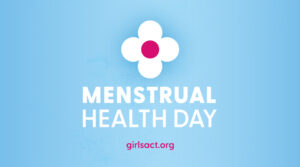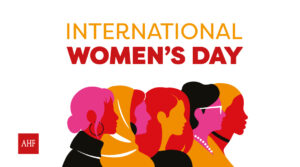Cuando un problema de salud tiene tan grandes dimensiones, como es el caso de VIH, se podría llegar a olvidar que su impacto es más que números, y que toca de maneras diferentes personas de todo el mundo.
Es por esto que desde el inicio de la respuesta al VIH, emprendida hace 40 años por organizaciones civiles antes que por las autoridades de salud, se hizo énfasis en la necesidad de atender a los grupos afectados poniendo atención en sus características, sus vulnerabilidades y sus necesidades.
Perspectivas Positivas: Voces en 3,500 Personas con VIH
Son pocos los estudios internacionales y extensos que se han dado a la tarea de preguntar las opiniones de las personas que viven con VIH. Este fue el objetivo que se propuso una reciente investigación realizada por ViiV Healthcare, una alianza farmacéutica entre Pfizer y MSD, dedicada al desarrollo de medicamentos contra el VIH.
La encuesta Positive Perspective (llamada en español Perspectivas positivas), se llevó a cabo en dos etapas que consultaron en total a 3 mil 500 personas con VIH de más de 20 países, entre ellos cuatro latinoamericanos (Argentina, Brasil, China y México).
El documento, dicen los autores, revela las experiencias de quienes viven con VIH y refleja los cambios que han surgido en la atención de la infección, además de que aporta datos sobre distintos aspectos de la calidad de vida que deben ser tomados en cuenta dentro de la atención médica.
Polifarmacia: Un Reto para la Calidad de Vida
La encuesta indagó sobre la polifarmacia, que se define como la situación en la que una persona toma tratamiento para cinco o más enfermedades o condiciones de salud. Se reveló que 42% de los encuestados se encuentra en dicha situación. Además, 82% afirmó que toma al menos un medicamento diario no relacionado con el VIH.
Gracias a la eficacia de los tratamientos antirretrovirales, cada vez más personas con VIH alcanzan sin problemas la tercera edad, lo cual conlleva la presencia de otras condiciones de salud relacionadas con el envejecimiento, como las enfermedades cardiacas o metabólicas. Sobre este tema, 57% de los participantes dijo sentir preocupación por tener que tomar más y más medicamentos conforme se hagan mayores.
Considerando que, hasta la fecha, el tratamiento antirretroviral debe tomarse durante toda la vida, el 73% de los encuestados desearían tener una opción de tratamiento con menos medicamentos. El estudio también encontró que la polifarmacia es un factor que afecta negativamente la calidad de vida que reportan las personas con VIH.
Diálogo Médico-Paciente: Un Factor Clave
En cuanto a la capacidad de diálogo entre médicos y usuarios, la encuesta encontró que aquellas personas con VIH que estaban más involucradas en su atención tenían mejores resultados de salud. En el mismo sentido, el 65% de los participantes dijo que le gustaría estar más involucrado en las decisiones sobre su tratamiento.
Sin embargo, un obstáculo para involucrarse es la mala comunicación que tienen con el personal de salud, ya que 77% indicó que no se siente cómodo al discutir con los profesionales de la salud los temas importantes relacionados con su infección.
Estos temas importantes son: las preocupaciones sobre los efectos secundarios del tratamiento antirretroviral y el impacto que estos fármacos podrían tener a largo plazo. Lamentablemente, un tercio de los participantes declaró sentirse incómodo al hablar con su equipo médico sobre ambos temas.
Además, la falta de comunicación se reflejó en que 34% de la población encuestada dijo que sus médicos no le informaron que mantener una carga viral indetectable (una cantidad de virus menor a 200 copias/ml de sangre) evita la transmisión del virus a las parejas sexuales. Dentro de este grupo, los hombres heterosexuales fueron quienes menos recibieron esta información durante su atención.
Comunicación Abierta: Empoderando a Personas con VIH
Para enfrentar los problemas de comunicación, la encuesta sugiere que las personas con VIH se acerquen a grupos de apoyo mutuo o a organizaciones de la sociedad civil que les ayuden a construir su confianza para hablar más abiertamente con los profesionales de la salud, con el fin de manejar de una mejor manera los tratamientos.
Así que ya lo sabes, es momento de comenzar a cambiar esa relación de jerarquía que suele existir entre el personal médico y los usuarios de los servicios. Busca abrir el diálogo con tu equipo médico; preguntar tus dudas y expresar tus opiniones no tiene por qué ser considerado como algo “imprudente” o “atrevido”. Después de todo, se trata de tu salud.
Y recuerda que comenzar cuanto antes el tratamiento antirretroviral y mantenerlo es la clave para vivir bien con el VIH. Si todavía no lo inicias o si lo suspendiste y quieres retomarlo, en AHF América Latina y el Caribe podemos ayudarte. Localiza nuestras oficinas en tu país o escríbenos por Whatsapp y conoce todos nuestros servicios.





